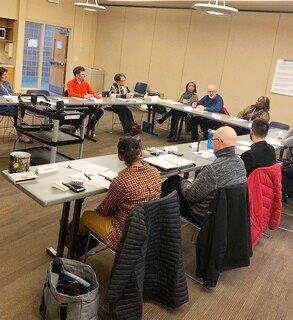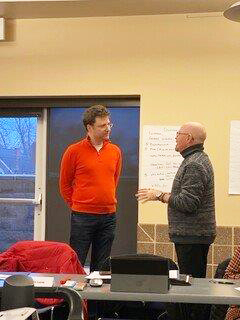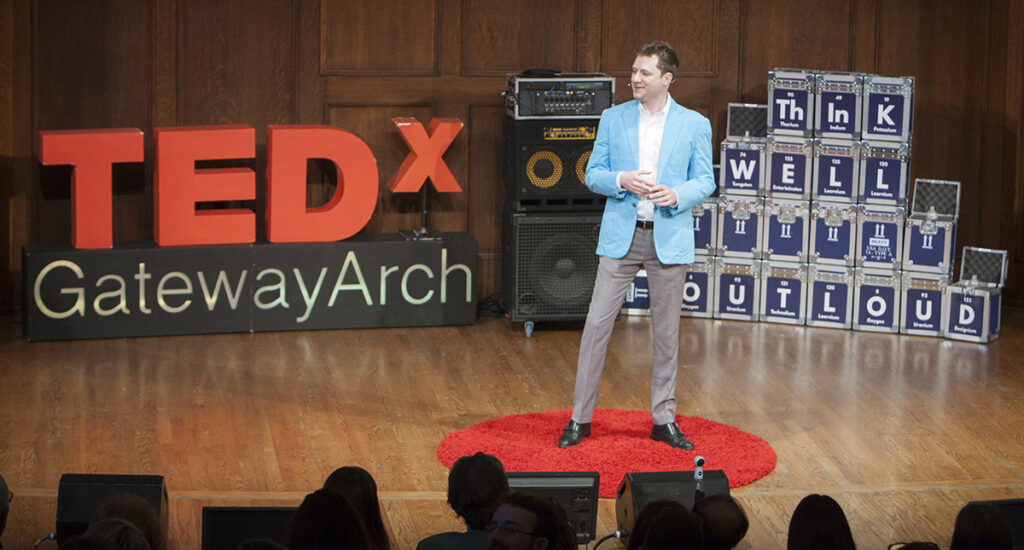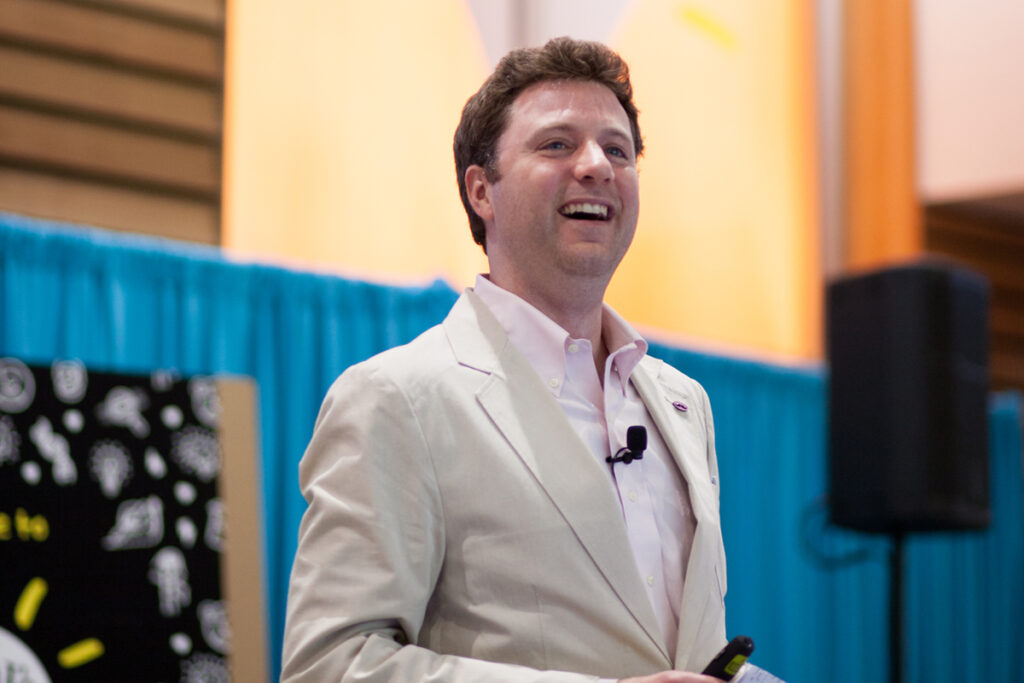Doug Lindsay describes the battle with his own rare disease. Now, he advocates for others.
With over a decade spent trying to understand the rare disease that kept him bedridden for most of his 20s, Doug Lindsay learned to become his own advocate. For years he dedicated himself to investigating his symptoms and seeking help from a variety of specialists in hopes of finding answers. Eventually, through extensive research and sheer determination, Lindsay discovered a treatment and pioneered a surgical procedure for his condition. Today, Lindsay uses his experience to advise individuals and organizations, including the ICTS, about the rare disease experience and its effects on patients, physicians, our health care system, and the greater research community as a whole.
People Magazine recently profiled his journey in a December 28, 2021 article that includes a comment from ICTS Associate Director Christina Gurnett, MD, PhD regarding the pervasiveness of rare disease. Gurnett is also the co-director of Washington University’s Intellectual and Developmental Disabilities Research Center (IDDRC). Read the full article here.

As the ICTS Community Advisory Board (CAB) Co-Chair, Lindsay has worked with Gurnett often, most recently consulting with her on rare disease issues related to informed consent of COVID-19 patients for genetic testing. Early on in the COVID-19 pandemic, Washington University School of Medicine initiated a biorepository project, supported in part by the ICTS, to streamline coronavirus research efforts. The biorepository stored and managed specimens collected from adult and pediatric patients who had tested positive for SARS-CoV-2. And, since some of the research utilizing biorepository samples might involve sequencing the DNA of patients with COVID-19 to understand each person’s susceptibility to the illness, researchers consulted the Community Advisory Board for guidance on how to address treatable genetic conditions — unrelated to COVID-19 — that might be uncovered during the course of the research. Per Gurnett, “The Community Advisory Board and specifically Doug’s guidance with his unique rare disease perspective continues to be invaluable to our efforts helping investigators and clinicians provide care and conduct research to the highest ethical standards.” Read more about the ICTS, the biorepository, and the Community Advisory Board.

Gurnett’s work with Lindsay continues today, collaborating together on Reactive Barometer Sessions, a unique program where the Community Advisory Board provides initial community reactions to ideas or projects developed by Washington University research teams in an effort to help bridge the gap between university research and local communities. “We (the CAB) are a diverse group of people who have extensive backgrounds. But we aren’t clinical researchers,” explains Lindsay. “We take the way we aren’t experts and turn that into a strength by providing a good sounding board for what the community response may be.”
Throughout the pandemic, Lindsay also shared his expertise by serving as an advisory board member on the ACTIV-1 IM trial, a randomized, placebo-controlled trial that was part of the Accelerating COVID-19 Therapeutic Interventions and Vaccines (ACTIV) initiative. The National Institutes of Health announced the ACTIV initiative in April 2020 to develop a national research response to prioritize the speed and the development of the most promising COVID-19 treatments and vaccines. Along with a diverse group of community advisory members from other national CTSA hubs, Lindsay shared his perspective as a rare disease patient during monthly Zoom meetings with researchers involved with the ACTIV-1 IM trial, led by protocol team chair and ICTS Director, William Powderly, MD. “As a consulting team, it gave us a chance to connect directly with researchers engaged in the COVID fight, advising on things like how to recruit and how to communicate results,” recalls Lindsay. “We were walking these researchers through the challenges they might face and each of us was bringing our unique perspective.”

In September 2020, Lindsay was appointed as co-chair for the Advisory Panel on Rare Diseases of the Patient-Centered Outcomes Research Institute (PCORI), an independent, nonprofit, organization authorized by Congress in 2010, that funds research to provide patients, their caregivers, and clinicians with the evidence-based information needed to make better-informed healthcare decisions. In this role, Lindsay will advise and provide recommendations to PCORI’s Board of Governors, Methodology Committee, and staff on the conduct of patient-centered comparative clinical effectiveness research in rare diseases and on coordination and engagement with the rare disease research community.
As a personal medical consultant, I work directly with rare disease patients. A lot of people are living lives as part of the rare disease experience – not only patients but their families. Through my public service efforts, like with the ICTS and PCORI, I’m able to make a broader difference and bring an integrated medical philosophy consistent at an individual and societal level.
Doug Lindsay
Lindsay reflects on his many roles. “As a personal medical consultant, I work directly with rare disease patients. A lot of people are living lives as part of the rare disease experience – not only patients but their families. Through my public service efforts, like with the ICTS and PCORI, I’m able to make a broader difference and bring an integrated medical philosophy consistent at an individual and societal level.”
Read more about Doug Lindsay’s personal journey in the CNN Health article, “This college dropout was bedridden for 11 years. Then he invented a surgery and cured himself.”
